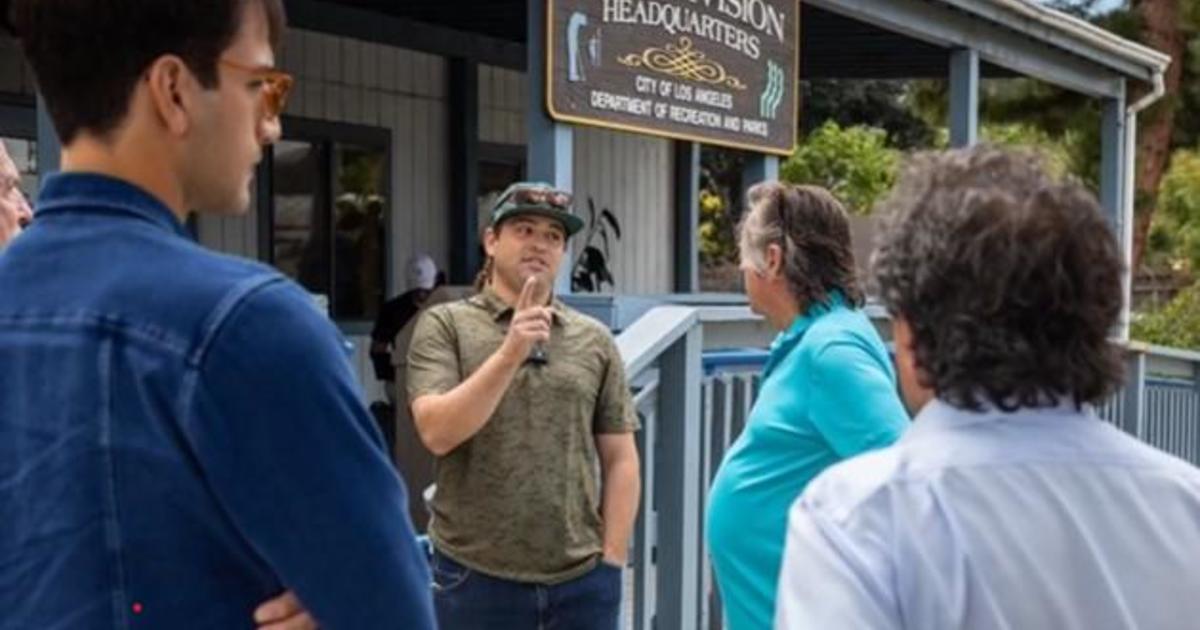Appeals Court Delays Sex-Change Operation For Inmate After She's Recommended For Parole
SACRAMENTO (AP) — A federal appeals court delayed sex reassignment surgery for a transgender prison inmate in California on Thursday, hours after a state panel recommended that she be paroled.
The separate decisions make it less likely that convicted killer Michelle-Lael Norsworthy will receive the prison-funded surgery before she is released.
Norsworthy, 51, has lived as a woman since the 1990s and was scheduled for the procedure on July 1 after a lower court judge ordered the state to provide it as soon as possible.
The state, however, contested the ruling and the appellate court delayed the surgery while it considers the case — a process that could take months.
Meanwhile, the state Board of Parole Hearings has 120 days to review the commissioners' recommendation that she be freed. If it is upheld, Gov. Jerry Brown will have another 30 days to intervene.
The three-judge panel of the 9th U.S. Circuit Court of Appeals said nothing about the parole decision in its brief ruling and instead noted that the case raises serious legal questions about whether the state's resistance to the surgery violates Norsworthy's constitutional rights.
Lawyers for Norsworthy have argued that denying the operation would amount to cruel and unusual punishment. The state Department of Corrections and Rehabilitation countered that it has met all of its requirements by providing counseling and hormone therapy.
"Also weighing in favor of a stay here is the likelihood that, absent a stay, this litigation would become moot before receiving full appellate consideration," the appeals panel said as it set a hearing on Norsworthy's case in August.
The stay came the same day that two parole commissioners decided Norsworthy is no longer dangerous and should be freed after serving 28 years in prison for a second-degree murder conviction.
Senior Deputy District Attorney Ray Armstrong opposed her release, arguing that she has not taken responsibility for the murder of 26-year-old Franklin Gordon Liefer Jr. after an argument in a Fullerton bar in November 1985.
Norsworthy, then 21, shot Liefer three times and he died six weeks later. Armstrong said Norsworthy initially claimed the weapon fired accidentally and later contended that she had not intended to kill Liefer.
Armstrong also cited 16 prison rule violations by Norsworthy for fights, threats and possession of contraband, though she has had a clean record since 2009.
"We think that it's telling if the person can't sort of behave in prison, they're not going to behave if they're released," he said by telephone after the nearly three-hour hearing.
The parole hearing was delayed four times in six months, prompting prison officials to accuse Norworthy of stalling until she received the operation.
Lawyers for Norsworthy denied the allegation and said she would be eligible for Medi-Cal, which covers medically necessary sex reassignment surgeries, if paroled.
"We are thrilled that Michelle's parole hearing was successful, and that she might soon be able to live her life freely as a woman," Ilona Turner, legal director of the Oakland-based Transgender Law Center, said in a statement. "Being housed with men, sexually assaulted, and denied critical health care these past 30 years, Michelle has suffered greatly in prison and continues to suffer every day she is denied the surgery she desperately and urgently needs."
Norsworthy is being held at Mule Creek State Prison, a men's prison in Ione, near Sacramento. Prison records still refer to her by her birth name of Jeffrey Bryan Norsworthy.
Corrections officials said in a statement that they were pleased that the delay will let the appeals court review the merits of the state's appeal of the order by U.S. District Judge Jon Tigar in San Francisco.
Norsworthy said in court documents that she has felt distress and anxiety since adolescence of as a result of gender dysphoria but only realized she needed sex reassignment surgery while she was in prison. She was diagnosed with gender identity disorder in 1999 and began taking female hormones.
She began asking the corrections department for the surgery in 2012 after learning a judge for the first time had ordered Massachusetts to provide an inmate with the procedure. However, that decision was overturned on appeal in December, and the U.S. Supreme Court declined to intervene.
(Copyright 2015 The Associated Press. All rights reserved. This material may not be published, broadcast, rewritten or redistributed.)



